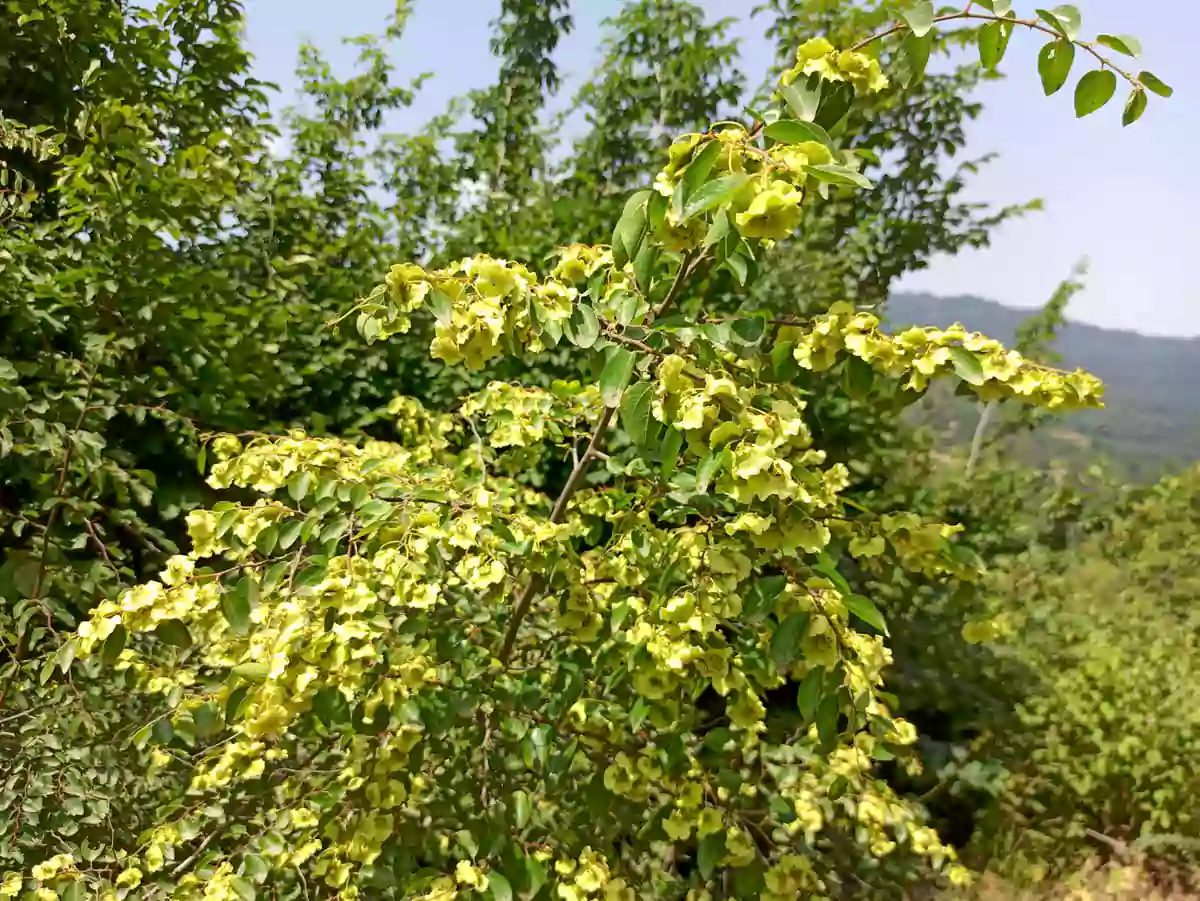Learn to bake the famous Medovik layer by layer. This classic Russian dessert, with its soft honey biscuit and creamy...
Siah-talo Honey: A Comprehensive Guide to Christ's Thorn Jujube Honey & Its Health Benefits
Siah-talo Honey: A Comprehensive Guide to Christ's Thorn Jujube Honey & Its Health Benefits
Siah-talo, scientifically known as Ziziphus spina-christi, is a thorny, native tree of Iran with significant ecological value. While its thorns may be the first thing you notice, its flowers are a rich source of nectar, producing a unique and highly prized honey. Christ's Thorn Jujube honey, or Siah-talo honey, is slow to crystallize and offers a unique opportunity for beekeepers and health-conscious consumers alike.
This remarkable tree is known by many names across Iran: "Siah-tali" in Noor and Gorgan, "Ghare-tikan" in Gilan, and "Siyeh-bour" in Talesh. Its Arabic names, "Samour" and "Al-shabah," highlight its widespread recognition. For a deep dive into this unique Iranian honey, continue reading to discover its characteristics, medicinal uses, and how you can enjoy it.
Characteristics of Authentic Siah-talo Honey
Honey from the Ziziphus spina-christi tree is highly valued for its quality and unique profile. Here are some key characteristics:
- Low Sucrose Content: Typically below 3%, making it a healthy natural sweetener.
- Moisture Content: Between 15% to 20%, ensuring a thick, luxurious texture.
- Color: A beautiful light golden hue.
- Moderate Sweetness: A balanced, medium-sweet flavor profile.
- Nectar Source: Bees collect nectar from the tree's flowers, which bloom from early May to early July.
This slow-to-crystallize honey is a favorite among honey enthusiasts for its distinct taste and lasting quality.
The Christ's Thorn Jujube Tree (Ziziphus spina-christi)

This deciduous shrub or small tree usually grows 2 to 3 meters tall. Its branches are armed with sharp thorns, and its leaves are oval-shaped with smooth edges. The tree produces spherical, yellowish-green fruits that ripen to brown in the autumn.
Its natural habitat spans from Southern Europe and North Africa to Southwest Asia, including Iran, Tajikistan, and Northern China. In Iran, you can find it thriving in the Alborz and Zagros mountain ranges. Beyond its role in honey production, the tree is often planted as a natural fence to protect farmlands from wild animals.
Traditional & Modern Health Benefits of Ziziphus Honey
Historically, parts of the Christ's Thorn Jujube tree, including its roots and leaves, were used in traditional medicine for their therapeutic properties. Today, scientific research continues to explore and validate these uses, particularly for the honey derived from its flowers.
- Anticancer Properties: Recent studies suggest that extracts from Ziziphus spina-christi may help inhibit the growth of certain cancer cells, offering a promising area for further research (Zengin et al., 2023).
- Digestive Health: The honey is known to support stomach and gut health, with traditional use for treating diarrhea and constipation.
- Diuretic Effects: The plant contains compounds that may increase urine production, which can be beneficial for those with urinary tract infections or kidney stones.
- Anti-inflammatory Benefits: It possesses anti-inflammatory properties that may help reduce pain and inflammation associated with joint conditions like arthritis.
- Cholesterol Regulation: Rich in antioxidants, this honey may help lower "bad" LDL cholesterol and increase "good" HDL cholesterol, supporting cardiovascular health.
How to Make Siah-talo Herbal Tea
While the honey is a fantastic way to benefit from the plant, a herbal tea made from its leaves is another popular method. Here’s a simple recipe:
Ingredients:
- 1 tablespoon dried Siah-talo leaves
- 1 cup (200 ml) boiling water
- Honey or sugar to taste (optional)
Directions:
- Crush the dried leaves to release their aroma.
- Place the crushed leaves in a teapot or mug.
- Pour the boiling water (around 90-95°C) over the leaves.
- Cover and let it steep for 10-15 minutes.
- Strain the tea and add Ziziphus honey to sweeten if desired.
Leave a comment
Log in to post comments
Related posts
 Why does pollen improve your health?
Why does pollen improve your health? 10 Ways to Consume Bee Pollen
10 Ways to Consume Bee Pollen



















Latest comments